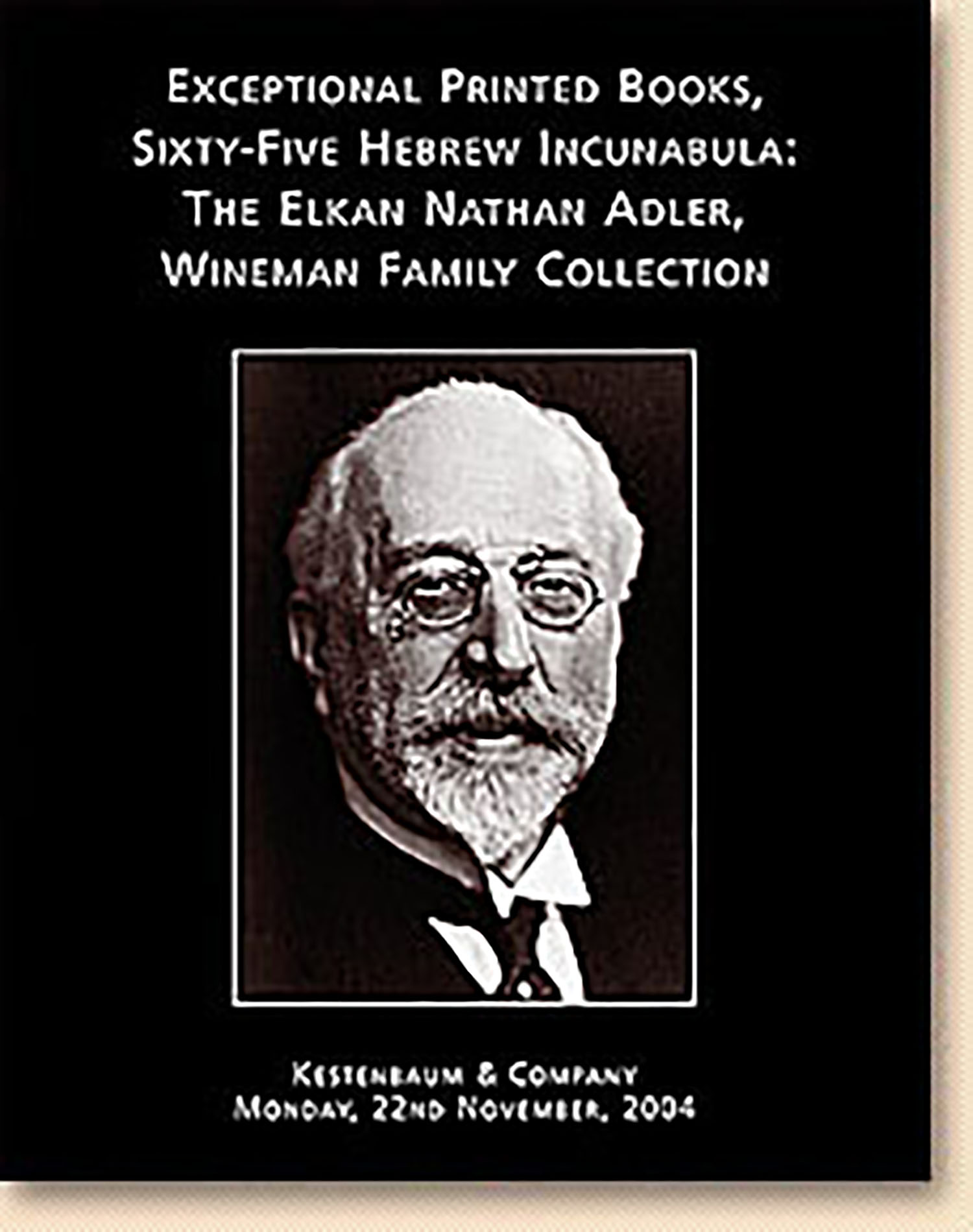Pentateuch with Megiloth and Haphtaroth

AUCTION 26 |
Monday, November 22nd,
2004 at 1:00
Exceptional Printed Books, Sixty-Five Hebrew Incunabula: The Elkan Nathan Adler-Wineman Family Collection
Lot 47
(BIBLE)
Pentateuch with Megiloth and Haphtaroth
Brescia: Gershom ben Moses Soncino 1493-4
Est: $30,000 - $40,000
PRICE REALIZED $27,000
EXTREMELY RARE INCUNABLE. ONLY ONE COMPLETE COPY EXTANT, AT THE BIBLIOTECA AMBROSIANA, MILAN.
It was in Brescia, westernmost city in the Republic of Venice, that Gershom found a temporary home after having been exiled from Soncino together with his fellow Jews by the intemperate ruler of the Duchy of Milan, Lodovico “Il Moro.” “Of all the territories tributary to Venice, none was more valuable to her than Brescia, ‘the armed,’ for from her workshops famed for centuries…came the most splendid specimens of the armorer’s art, the weapons of war so valiantly used by the island republic in her many wars of conquest and defense” (D. Amram, The Makers of Hebrew Books in Italy, p. 72). Gershom Soncino spent the years 1490-95 in Brescia, producing chiefly Pentateuchs, prayer books and psalters. Amram finds this to be a sign of the times: “When men are in daily terror of their lives and in fear of the confiscating hand of the oppressor, they have no inclination for the delights of literature…The books that followed were the necessities of the religious, rather than the luxuries of the intellectual, life.” Ibid., pp. 79-80
